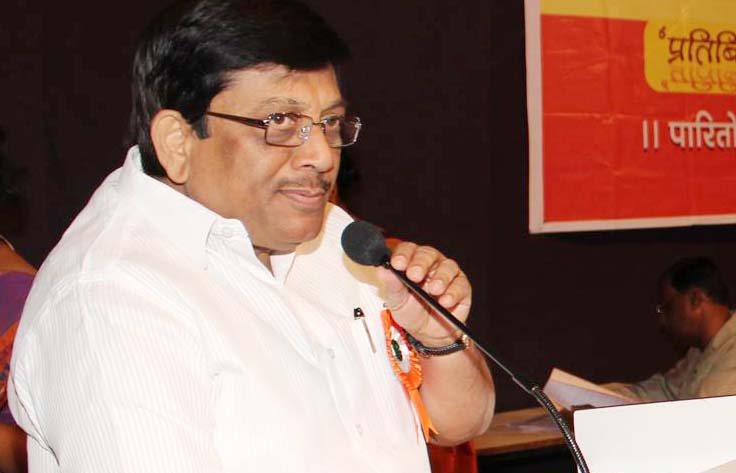The news related to retail banking, as widely reported in media was clarified by the Chairman of Administrative Board of Maharashtra State Cooperative (MSC) Bank, Vidyadhar Anskar that the said proposal has been submitted to the State Registrar of Cooperative Societies (RCS) and not to the RBI as of now.
The MSC Bank, which is witnessing a turnaround by the team Anaskar has sought permission to enter into retail banking sector.
While denying the media reports emphatically that the MSC Bank has submitted a proposal to RBI, Chairman of Administrative Board Vidyadhar Anskar said to Indian Cooperative “we have not submitted any proposal to RBI, we have submitted it before the Maharashtra RCS for his approval.
Talking to this correspondent on phone, Vidyadhar Ansakar said, “MSC Bank has amended its bye-laws which earlier read that bank can only do agro based banking. To minimize the risk and generate income we have decided to enter into retail banking and compete with private sector”.
“We have amended the bye laws which was unanimously passed during the AGM held last month and submitted the proposal to RCS on 6th October. The objective is to support weak Urban Cooperative Banks of state or some branches of the ailing UCBs”, he added.
Interestingly, although the proposal is yet to be cleared by the RCS, the MSC Bank has received a few proposals and one of them is from the ailing Rupee Cooperative Bank.
Despite numerous efforts, the administrative board of Rupee Bank has so far failed to revive the Pune based UCB which is having a NPA amounting of Rs 700 crore. There had been media speculations that the Rupee Bank might be merged with MSC Bank after getting RBI’s permission. The RBI directions were originally imposed from February 22, 2013 and were extended on so many occasions so far on the UCB.
Earlier to save the financially weaker DCCBs from the prospect of closure, MSC Bank mooted the idea of making weak DCCBs as business correspondents of the MSC Bank. These BCs would give details of eligible borrowers to us; we would give them fund which they can disburse as loans to the needy borrowers”, Anaskar explained his plan. In return the MSC Bank would give one percent commission to DCCBs for providing the details of borrowers.
MSC Bank is having a business mix of Rs 32,000 crore and having a reserve fund of about Rs 3700 crore. In last FY 2017-18 bank earned a net profit of Rs 245 crore and having a Net NPA 2.4%, these figures were revealed during the AGM that had been organized last month.
Maharashtra is India’s leading state in terms of the network of co-operatives. The MSC Bank is an apex body for 31 DCCBs which have about 3,746 branches, with a third tier of around 21,085 Primary Agriculture Credit Societies (PACS) which directly lend to farmers and the rural population.
Anaskar and his team has been active recovering non-performing assets or NPAs of Rs 1,163 crore, of which sugar mills account for Rs 485 crore, the bank has announced a one-time settlement scheme. In the past it had sold some of the non-functional sugar mills to reduce its NPAs. But since it was finding it tough to sell the remaining sugar mills, it has now allowed an extended lease period of up to 25 years. “We have already given five sugar mills on lease under the new policy and some more proposals are under consideration,” said Anaskar.
